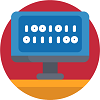A guiding principle of SineWave’s cybersecurity thesis is to invest in technologies that can help enterprises understand and protect their systems and data rather than focus on remediation after a breach or address vulnerabilities reactively. This proactive approach underpins zero trust solutions and data-centric architectures. Within this framework, identity management and access control (IdM) serve as critical components for zero trust. To effectively implement this, it is essential to identify who is requesting the access – whether an individual or entity – before determining whether the access is warranted and continuously perform this verification. In practice, however, many enterprises, both in government and the private sector, tend to concentrate on user identity management and even with that, reply on traditional secrets like passwords. Furthermore, while there is significant emphasis on securing servers, databases, and applications, little attention is paid to other parts of the infrastructure. Operational technologies (OT) and Internet of Things (IoT) environments, receive insufficient attention, despite the convergence of digital and physical technologies in these domains. Fortunately, we now possess the tools and technologies necessary to enhance our approach. By defining identity management policies tailored to organizational needs, we can move towards effective implementation and utilization using automation and innovation.
Advanced technologies are playing a pivotal role in meeting the IdM needs essential for a robust zero trust framework. Innovations in generative artificial intelligence and automation enable organizations to analyze user and device behavior patterns across diverse environments in real-time, allowing for visibility and dynamic access control decisions. Organizations can make informed, real-time decisions based on contextual insights. This allows for the analysis of anomalies and potential threats in environments from cloud based server rooms to shop floors where both digital and physical systems interact.
Additionally, the integration of identity orchestration platforms allows for seamless management of identities across various systems, ensuring that access policies are consistently enforced regardless of the technology in use. These platforms can facilitate the onboarding and offboarding of humans, processes, and devices, streamlining security policies and processes in diverse operational environments in organizations.
SineWave has recently invested in Corsha, an advanced IdM technology company that focuses on enterprise identity for machines. Corsha excels in non-human identity management and access control, bringing capabilities such as multifactor authentication, real time visibility, and continuous monitoring for devices and machines, including legacy systems. In addition to its extensive IdM capabilities, Corsha has also considered the enterprise and worked to ensure its advanced technology is easy to deploy, use, and maintain. This is crucial for organizations aiming to implement effective security measures without overwhelming their teams. By embedding robust IdM capabilities from the outset, enterprises in government and industry can build a zero trust framework and lay a strong foundation for cybersecurity.
Developing this protected environment and securing data is a cornerstone for good business whether it is in the public or private sector. As organizations embrace advanced technologies and innovative solutions, they can transform their approach to identity and access management, ultimately enhancing their overall security posture.




















